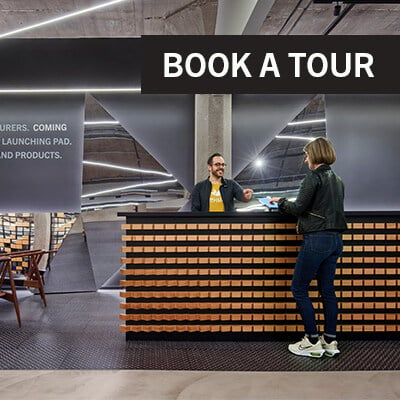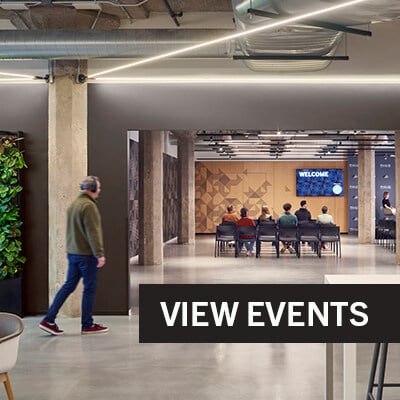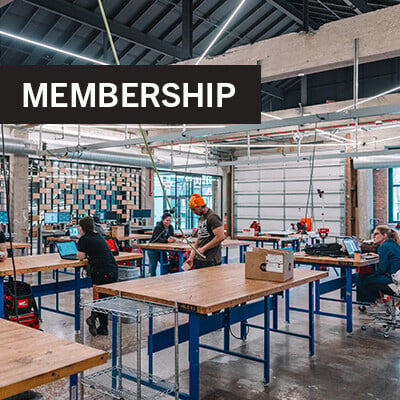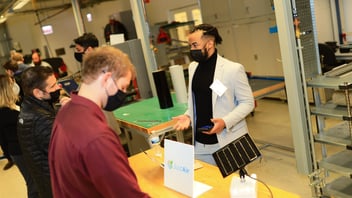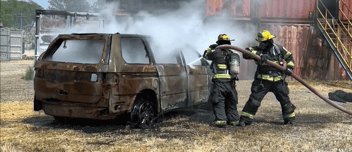Each IIoT team taking part in the mHUB Accelerator has chosen a core focus that drives them to succeed every day.
This week, mHUB sat down with three teams that put health and safety at the core of their startup. Get to know a little more about Ascent Integrated Technologies, JustAir, and Stroma Vision from their CEO’s Paul Couston, Darren Riley, and Anil Uzengi.
Where did your idea and value proposition begin?
 Couston: My co-founder, Alex, and I have always wanted to work on human performance technology. As a kid, I grew up watching Iron Man and playing a lot of sci-fi video games, but I was disappointed when I realized much of that technology doesn’t actually exist. When we realized how little technology was available for firefighters and first responders – we knew we wanted to build technology to keep these heroes alive.
Couston: My co-founder, Alex, and I have always wanted to work on human performance technology. As a kid, I grew up watching Iron Man and playing a lot of sci-fi video games, but I was disappointed when I realized much of that technology doesn’t actually exist. When we realized how little technology was available for firefighters and first responders – we knew we wanted to build technology to keep these heroes alive.
 Riley: My decision to launch JustAir was rooted in a combination of both lived and professional experiences that brought me to the realization of how air quality impacts underserved communities. There is a real need to ensure that no matter what neighborhood you are born in, you have access to clean air. We hope to build the infrastructure so decision-makers can move us to a more equitable breathing environment for all.
Riley: My decision to launch JustAir was rooted in a combination of both lived and professional experiences that brought me to the realization of how air quality impacts underserved communities. There is a real need to ensure that no matter what neighborhood you are born in, you have access to clean air. We hope to build the infrastructure so decision-makers can move us to a more equitable breathing environment for all.
 Uzengi: We started our journey to develop smart safety systems in the automotive sector in mid-2017. We developed a computer vision-powered connected camera system for fleets to identify dangers then alert the drivers and provide coaching and feedback at the end of trips. A high-resolution vision sensor is able to detect minute movements, drowsiness, and distraction of the driver while driving. Then, our product evolved from a vision-based driver safety aftermarket device to a vision-based worker safety platform in 18 months – thanks to lessons learned from the customers and pilots. Now, we are creating value for workers to keep them alive with our computer vision technology.
Uzengi: We started our journey to develop smart safety systems in the automotive sector in mid-2017. We developed a computer vision-powered connected camera system for fleets to identify dangers then alert the drivers and provide coaching and feedback at the end of trips. A high-resolution vision sensor is able to detect minute movements, drowsiness, and distraction of the driver while driving. Then, our product evolved from a vision-based driver safety aftermarket device to a vision-based worker safety platform in 18 months – thanks to lessons learned from the customers and pilots. Now, we are creating value for workers to keep them alive with our computer vision technology.
Tell us about the growth you’ve experienced since your launch.
Couston: We started roughly 1 year ago, but before we built anything, we started by talking to firefighters to better understand their problems. To date, we’ve talked to over 400 firefighters and are running paid pilots with over 40 fire departments in 17 states. We have also identified and are actively applying for over $80M of federal contracts and are even co-developing products with 3 major protective equipment manufacturers.
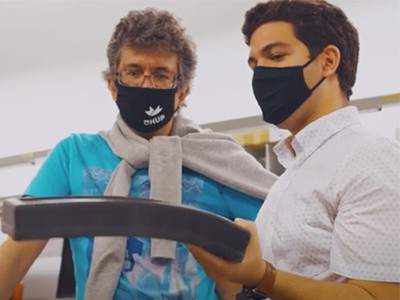
Riley: Since our launch, we have secured a paid pilot, developed our initial product, and established connections with other partners in the air quality space.
Uzengi: Stroma has served Fortune 500 clients such as Unilever, Vodafone, Bridgestone, E.ON, and Kalmar in Turkey and Europe with 550+ active devices in the field. Stroma runs embedded systems that perform computer vision tasks and interacts with computers in the cloud with Wi-Fi/Bluetooth, Ethernet, and 4G in the field currently. In covering all geographic areas of Turkey, the team gained important experience on embedded devices being tested in harsh weather over four seasons. High-temperature resistance, smooth recovery from sudden power cuts, and service in intermittent connections are company capabilities gained thanks to these experiences.
What does the future look like?
Couston: Currently, a fire captain manages the scene outside of the burning building while relying on only a radio and a whiteboard. The future state is augmenting that fire captain with a simple command tablet that provides actionable insight into his team’s health, environment, and location. The sensors technology integrates into existing equipment, identifies abnormal heart rates, provides simultaneous mapping/tracking, and notifies potential hazards before they become a more serious problem.
Riley: For JustAir, the future looks like a better breathing environment for all. We believe that to reach this future, the community must be at the core of our work. Thus going forward, we are keen on developing solutions to support community engagement and awareness efforts around air quality. By doing so, we will (1) have a more informed community that is empowered to advocate for their environment and (2) provide policymakers with the data to support their decisions in making our breathing environment better for all.
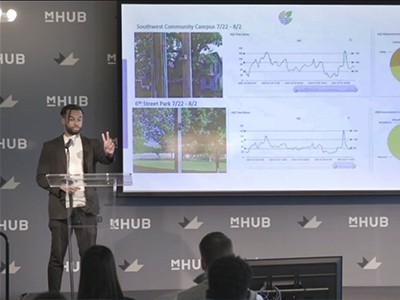
Uzengi: We’d like to grow in the US with our partners (also investors) mHUB, Avnet and Panduit, with our unique worker safety capabilities at the edge. We will continue to focus on real problems, offer real solutions to them, and create meaningful social impact by distilling cutting-edge multidisciplinary research into great products to reach Zero Accident Vision with our customers.
The introduction of new technologies has mostly focused on efficiencies and productivity; why has worker safety and health become more important?
Couston: I have more biomonitoring and GPS technology on my smartwatch than firefighters have while wearing over $10,000 worth of equipment. The leading cause of firefighter fatality is cardiac arrest, which unfortunately occurs well after the fire is over (24-72hrs). After risking their lives to save strangers, many firefighters pass away at home with their families. This is just so wrong. With improvements to biometric monitoring and on-scene insight, we can ensure that these heroes are protected and can make it back home to their families every night.
Riley: There is no more significant opportunity than making the world a healthier and livable place today and for future generations. I broadly believe that technologies that support productivity cannot be sustained long-term without intentional attention to safety and health.
Uzengi: Our mission is to empower workers and managers in their journey to reach Zero Accidents with comprehensive, preventive, and transparent analysis tools. We aim to transform scientific and technological breakthroughs into products that have the potential to save lives with our experience in the fields of hardware, artificial intelligence, and edge computing. We want to live in a world where there is simply not a single preventable accident, we believe that it’s possible if we can connect all the dots and create permanent positive worker behavior change.
Keep up with Ascent Integrated Technologies, JustAir, and Stroma Vision by visiting their websites. If you’re an investor and would like to get in contact with one of these teams, send an email to thierry@mhubchicago.com. If you are interested in being contacted about the next open application window for the mHUB Accelerator, complete the interest form below.
